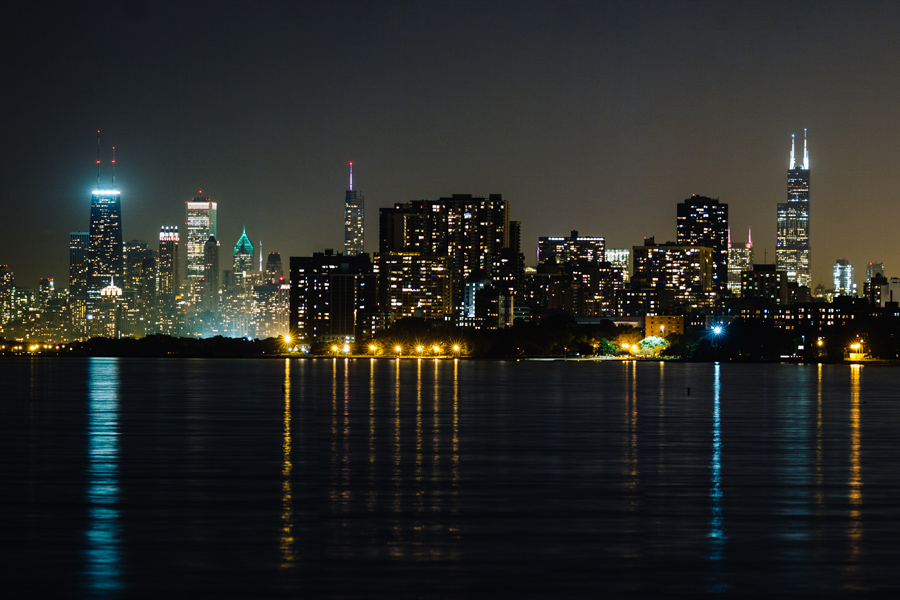Candidates face a crowded field in the Chicago mayoral Election
February 8, 2019
On Feb. 26, Chicago residents will cast their vote for one of 14 candidates seeking to replace Rahm Emanuel as mayor of Chicago.
Emanuel announced he would not run for reelection in September 2018, after serving for eight years as Chicago’s first Jewish mayor. During his two terms in office, he dealt with the largest number of school closures in the city’s history, the murder of Laquan McDonald by former police officer Jason Van Dyke, a federal investigation of the Chicago Police Department and a sex abuse scandal in Chicago Public Schools.
In a crowded field, candidates have struggled to stand out. Approximately one in four voters remain undecided, according to a Jan. 25 poll from the Chicago Sun-Times. In the next three weeks, candidates will need to amp up their call to voters, but if no one receives 50 percent of the vote, the top two candidates will likely compete in a runoff election on April 2.
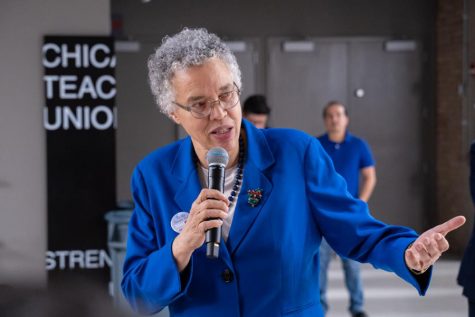
Toni Preckwinkle
TONI PRECKWINKLE
By Andres Correa
For the past nine years, Toni Preckwinkle has served as the Cook County board president. Prior to her current position, she was an alderman for Chicago’s 4th Ward, the executive chair of Cook County Democratic Party and a teacher.
According to her campaign website, Preckwinkle supports an elected school board, stopping school closures and decreasing the reliance on charter schools. Preckwinkle said she wants to make sure “every student in Chicago is invested in and valued.”
When it comes to public safety, Preckwinkle wants to create a Mayor’s Office of Criminal Justice to improve policing, restore trust and accountability between police and citizens and improve current training policies. In conjunction with police reform, she promises to prioritize the unsolved murders of many transgender women and increase transgender representation in police accountability.
Preckwinkle also wants to increase the minimum wage by 50 cents every six months until it reaches $15.
The Chicago Teachers Union endorsed Preckwinkle in December 2018. However, she has recently been under fire for taking a $10,000 campaign contribution from Ald. Ed Burke, who was charged with extortion for trying to get funding on her behalf. Preckwinkle has received the second most campaign funding behind Bill Daley.
According to a Jan. 25 Chicago Sun-Times poll, Preckwinkle is currently in the lead with 13 percent of the vote.
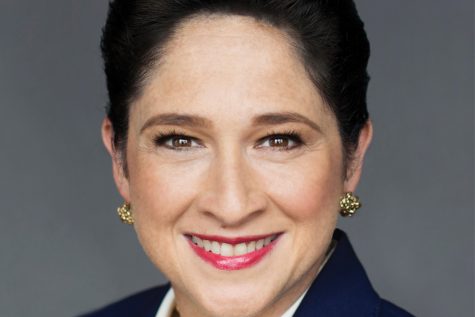
Susana Mendoza
SUSANA MENDOZA
By Clare Proctor
Susana Mendoza grew up in Chicago’s Little Village until her family moved to the suburbs to get away from gang violence in the city. She returned to Chicago and was elected as the city’s first female clerk in 2011. She was also the first Hispanic independently elected to statewide office.
Mendoza has served as Illinois comptroller since 2016, where she helped pass the Debt Transparency Act, which publicizes the finances of every state agency on a monthly basis. Before that, in 2000, she was elected as Democratic representative for the 1st District in the Illinois House of Representatives, serving six terms.
Now, Mendoza is campaigning on her “Future Now Plan.” The platform outlines comprehensively tackling institutional racism and criminal justice inequality, providing quality public education in Chicago and investing in job creation in low-income areas in the South and West Sides, among other things.
Mendoza’s campaign stresses her history in Chicago.
“It’s time to have a mayor who is from the neighborhood, who understands neighborhoods and puts neighborhoods first,” Mendoza said on her campaign website. “I’m excited to work with all Chicagoans to shape our future together.”
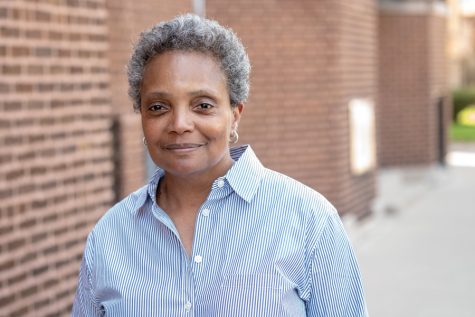
Lori Lightfoot
LORI LIGHTFOOT
By Andres Correa
In May 2018, Lori Lightfoot announced she would run against Mayor Rahm Emanuel before he stepped down. This is Lightfoot’s first time running for public office, and she is the first openly lesbian candidate in the Chicago mayoral race.
Prior to running, Lightfoot was a senior equity partner at Mayer Brown, the largest law firm in the United States in terms of profits, based in Chicago. In addition to being an attorney, Emanuel appointed Lightfoot chair of the Chicago Police Accountability Task Force and president of the Chicago Police Board, where she worked on issues concerning the police force and abuse.
Lightfoot has been critical of the CPD in the wake of the Laquan McDonald shooting. She supports eliminating the CPD’s gang database, implementing a civilian oversight of the police and abolishing U.S. Immigration and Customs Enforcement.
When it comes to education, Lightfoot wants to put a freeze on new charter schools. In an interview with the Chicago Sun-Times, she said she wants parents, teachers and other important stakeholders to be part of the reform.
Given the city’s budget crisis, Lightfoot wants to ensure that city workers receive their pensions. She supports the legalization of recreational marijuana, the introduction of a casino in the city and a progressive state income tax as sources of revenue.
Lightfoot has also proposed bringing back the Environment Department — terminated under Mayor Emanuel — with the goal of expanding the city’s water testing.
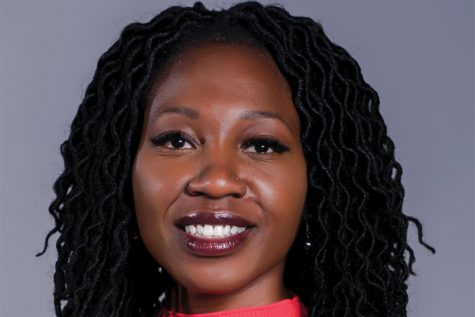
Amara Enyia
AMARA ENYIA
By Aaron Boxerman
Amara Enyia’s background is in business, not politics. She started as an entrepreneur and community activist on Chicago’s West Side, eventually becoming director of the Austin Chamber of Commerce. If Enyia becomes mayor, it would be her first elected government position. Enyia’s support hovers around 3.1 percent, according to recent polling by the Chicago Sun-Times.
Eniya’s buzzword is equity — whether in economic development, education or government accountability. Enyia said she will strip aldermen of much of their executive power, which she says has created a culture of corruption. She supports the renegotiation of police contracts to increase transparency and remove loopholes that allow police officers to coordinate stories after instances of alleged police misconduct. She also wants to reopen conversation about ending selective enrollment public schools.
Since announcing her candidacy, Eniya has received high-profile endorsements from cultural icons like Chance the Rapper and Kanye West, cementing her image as the candidate-of-choice for young, progressive millennials. In an advertisement sponsored by a $400,000 donation from Chance the Rapper, Enyia emphasized that young voters can and should make their voices heard.
While Enyia has been publicly critical of corruption in Chicago politics, she has also been endorsed by Dorothy Brown, the clerk of the Circuit Court of Cook County and former candidate for mayor this year until she dropped out of the race. Brown was the subject of a decade-long FBI investigation for misuse of public funds in her role as clerk. Last fall, former staffers told federal investigators that the “going rate” for a job in Brown’s office was a $10,000 bribe, according to The Chicago Tribune.
In a speech accepting Brown’s endorsement, Enyia declared that both she and Brown were “focused on… breaking away from an establishment that’s mired in corruption.”
However, this week, The Tribune reported that Enyia did not disclose $21,000 she received while working for Democratic gubernatorial candidate Chris Kennedy. Enyia defended herself, arguing that she is far from the only person who struggles with filing taxes.
“I’m standing here as a real person who understands financial hardship because I have lived through it myself,” Eniya said at conference at city hall on Monday.
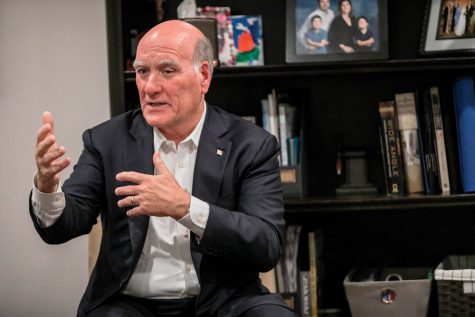
Bill Daley
BILL DALEY
By Catherine Henderson
The youngest son of former Mayor Richard J. Daley and brother of former Mayor Richard M. Daley, Bill Daley has focused on differentiating himself — not only from his 13 competitors, but from his family’s legacy in Chicago politics.
His platform focuses on reducing crime, rebuilding trust between the police and communities, creating affordable housing, investing in public projects and improving management of the city budget. He also emphasizes strengthening neighborhood schools, promising not to propose new schools, though he received $100,000 from Paul Finnegan, a big contributor to the Noble Network of Charter Schools.
“It’s time to move beyond the debate of charters vs. traditional public schools and recognize that they are all public schools,” Daley said to The Chicago Sun-Times. “Parents just want a good school, and the debate should focus on what is in the best interests of kids. Charter schools offer different learning options for families.”
Though he spent most of his career in the financial services industry, Daley served as U.S. Secretary of Commerce from 1997 to 2000 in the Clinton administration and chief of staff for former President Barack Obama in 2011. He leads the pack in campaign funds, having raised $5.57 million as of Feb. 1. However, an insurance exam scandal implicated Daley last week: After he failed the exam to become an insurance agent, he passed on his second try in 1973, but experts question the validity of his answers and wonder if he got inside help.
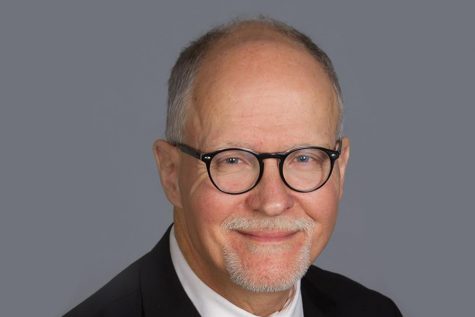
Paul Vallas
PAUL VALLAS
By Catherine Henderson
Born and raised in the Roseland neighborhood on the South Side, Paul Vallas’ career started in Chicago and has centered around education.
Vallas worked as a staff member in the Illinois legislature for 12 years, served as the CEO of Chicago Public Schools, moved to Pennsylvania to be the CEO of Philadelphia Public Schools and currently consults on education policy around the country. He also finished second to Rod Blagojevich in the 2002 Democratic Primary for governor.
Vallas has campaigned on a 5-point plan for Chicago, emphasizing decreasing violent crime, bringing jobs across the city, improving public education, fixing the city’s budget and increasing access to community-based social services, according to his campaign website. He also outlined ideas for infrastructure improvements, affordable housing and balancing the budget.
However, Vallas has come under fire for his handling of sex abuse cases as CEO of CPS after the Chicago Tribune uncovered over 500 reports of sexual misconduct in schools.
Despite his name-recognition, Vallas is polling at 4.3 percent, according to a January poll from The Chicago Sun-Times. He also is significantly behind his competitors in terms of donations, raising $964,020 as of Feb. 1.
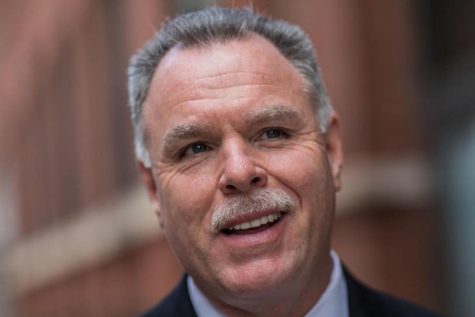
Gerry McCarthy
GARRY MCCARTHY
By Clare Proctor
New York native Garry McCarthy has never run for public office before, but has spent more than 30 years serving in law enforcement.
The 59-year-old was the Chicago Police Department superintendent under Mayor Rahm Emanuel for four years, until he was fired in December 2015 after footage of Chicago police officer Jason Van Dyke fatally shooting Laquan McDonald went public.
Before he worked in the CPD, McCarthy served as an officer with the New York Police Department for 25 years and police director in Newark, N.J., for five years.
Sticking with his policing background, McCarthy is running for mayor on a platform of improved community policing. He has also voiced opposition to Emanuel’s $95 million police academy plan to be built on the West Side of Chicago. There are better training methods that can be accomplished “a heck of a lot cheaper,” he told the Chicago Sun-Times in an interview.
Improving schools is also central to McCarthy’s campaign. He told Crain’s Chicago Business that he plans to provide “high-quality education opportunities particularly for black and Latino students whose neighborhood schools may have been closed or underperforming.”
McCarthy has also proposed that Chicago should annex surrounding suburbs, including Oak Park, Oak Lawn and Evergreen Park.
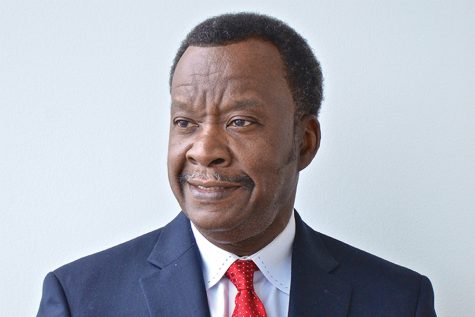
Willie Wilson
WILLIE WILSON
By Clare Proctor
The 2019 mayoral election is not Willie Wilson’s first time running for mayor. In 2015, when Mayor Rahm Emanuel was re-elected, Wilson received almost 11 percent of the vote in the general election.
This time around, Wilson is running on a 10-point plan for a “better Chicago.” His plan includes creating safe neighborhoods by eliminating carjackings and reopening mental health centers in Chicago communities, as well as legalizing recreational marijuana to gain tax revenue and decrease racial disparity in marijuana-related arrests. He also plans to make CTA rides free for senior citizens.
Wilson has lived in Chicago since 1965. He started working as a custodian at McDonald’s but worked his way up to become one of the first black owners of a McDonald’s restaurant. He has since gone on to own and produce his own TV station — Singsation! — a Gospel music program.
The candidate — who has a doctorate in divinity, humane letters and humanitarianism — has received the backing of Chicago Young Republicans because of his “pro-business” stance and desire to pass a property tax cap, the group’s president Chris Myers said in an interview with Crain’s Chicago Business.
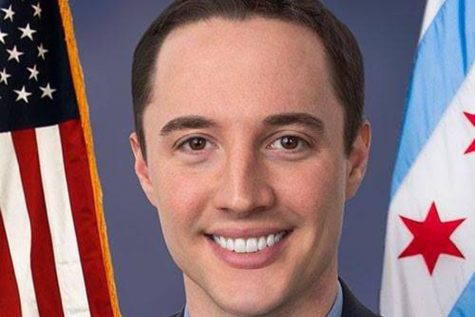
John Kolzar
JOHN KOZLAR
By Aaron Boxerman
John Kozlar grew up in Chicago’s Bridgeport neighborhood. He then attended the University of Chicago and currently practices law in Illinois. A lifelong resident of the South Side, [CQ] Kozlar, 29, emphasizes his youth and intention to “dismantle the Chicago machine,” he said at a mayoral forum Jan. 28.
Despite having never held elected office, Kozlar has twice campaigned for 11th Ward alderman. Kozlar ran as an underdog, with no institutional support and raising only a few hundred dollars. In 2015, he managed to force a run-off before losing to Patrick Daley Thompson with 48 percent of the vote.
Kozlar wants to strengthen ties between police and communities by instituting a live-in requirement. Under his plan, 60 percent of police officers who work in a given district must live in that district, so the community will see the police as their neighbors rather than as the enemy, Kozlar said at the Jan. 28 forum.
Kozlar said in an interview with the Chicago Sun-Times that the city needs to be tougher on crime.
“As a city, we need to be stricter with those who terrorize our neighborhoods,” Kozlar said.
In January 2019, a federal judge approved a consent decree between the federal government and Chicago, which will require the city to undertake dozens of police reforms, taking effect by March 1. Kozlar told the Sun-Times that the decree was written by people with no experience of police work, resulting in “unnecessary and illogical recommendations.”
“We just need better policy changes in place, without the need of making the Chicago Police Department less equipped to do its job to serve and protect our neighborhoods,” Kozlar said.
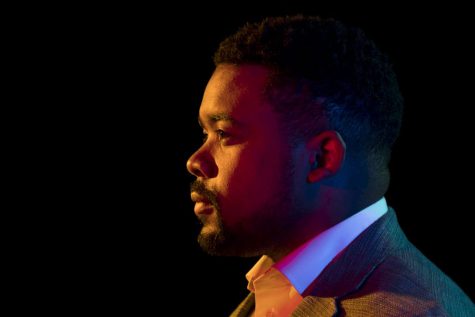
Neal Sales-Griffin
NEAL SALES-GRIFFIN
By Gabby Biernbaum
The last time Neal Sales-Griffin (SESP ‘09) held a political office, his platform was based on transparency, accountability and getting Wi-Fi access on the Lakefill.
The office? Northwestern’s Associated Student Government president.
Now, Sales-Griffin, a lifelong Chicago resident originally from Kenwood, is running for mayor. As the founder and CEO of CodeNow, Sales-Griffin has spent his years since graduating from Northwestern teaching low-income students to code. He also co-chaired the Chicago Technology Diversity Council.
Sales-Griffin said he wants to run for mayor to make Chicago more affordable and increase the quality of education. To that end, he supports expanding affordable housing, providing tax receipts and expanding universal pre-kindergarten.
The tech executive’s campaign got off to a rocky start in April, when the Chicago Tribune reported that he “bombed” his kickoff speech.. The rough patches continued when it seemed he may not appear on the ballot after a challenge to his election petition from Willie Wilson.
The Northwestern alum will appear on the ballot after surviving the challenge. However, simply appearing on the ballot might be his greatest accomplishment this election — Chicago Magazine ranks him 14th out of 14 in its mayoral candidate power rankings.
Economics Prof. Mark Witte, who taught Sales-Griffin at Northwestern, said in an interview with The Daily that though the campaign is a “longshot”, he would not count Sales-Griffin out.
“He’s pulled off some wild things,” Witte said. “This could happen.”

